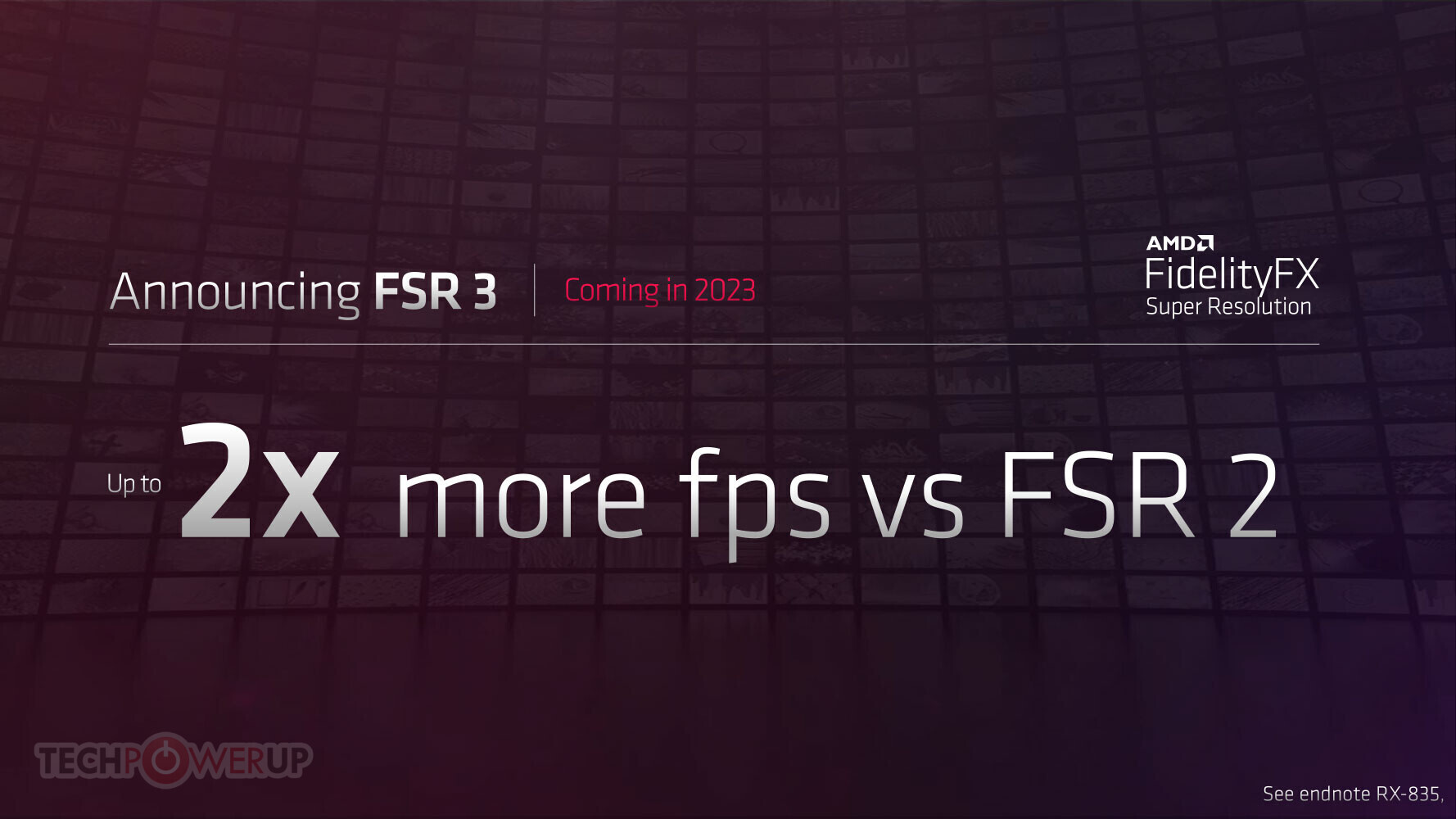erek
[H]F Junkie
- Joined
- Dec 19, 2005
- Messages
- 10,891
Could FSR 3 bring parity to the competition in terms of features and performance?
"AMD frantically dropped in the first mention of FSR 3.0 in its Radeon RX 7900 series RDNA3 announcement presentation (slide below). The company let out precious little details of the new technology except the mention that it offers double the frame-rate versus FSR 2 (at comparable image quality). Does this involve a frame-rate doubling technology similar to DLSS 3? We don't know yet. It could just be a more advanced upscaling algorithm that doubles performance at a given quality target compared to FSR 2. We'll know for sure later this month. It would be a coup of sorts for AMD if FSR 3.0 doesn't require RX 7000 series GPUs, and can run on older Radeon GPUs, whereas DLSS 3 requires the latest GeForce RTX 40-series GPUs."

Source: https://www.techpowerup.com/305557/amd-could-tease-dlss-3-rivaling-fsr-3-0-at-gdc-2023
"AMD frantically dropped in the first mention of FSR 3.0 in its Radeon RX 7900 series RDNA3 announcement presentation (slide below). The company let out precious little details of the new technology except the mention that it offers double the frame-rate versus FSR 2 (at comparable image quality). Does this involve a frame-rate doubling technology similar to DLSS 3? We don't know yet. It could just be a more advanced upscaling algorithm that doubles performance at a given quality target compared to FSR 2. We'll know for sure later this month. It would be a coup of sorts for AMD if FSR 3.0 doesn't require RX 7000 series GPUs, and can run on older Radeon GPUs, whereas DLSS 3 requires the latest GeForce RTX 40-series GPUs."

Source: https://www.techpowerup.com/305557/amd-could-tease-dlss-3-rivaling-fsr-3-0-at-gdc-2023
![[H]ard|Forum](/styles/hardforum/xenforo/logo_dark.png)